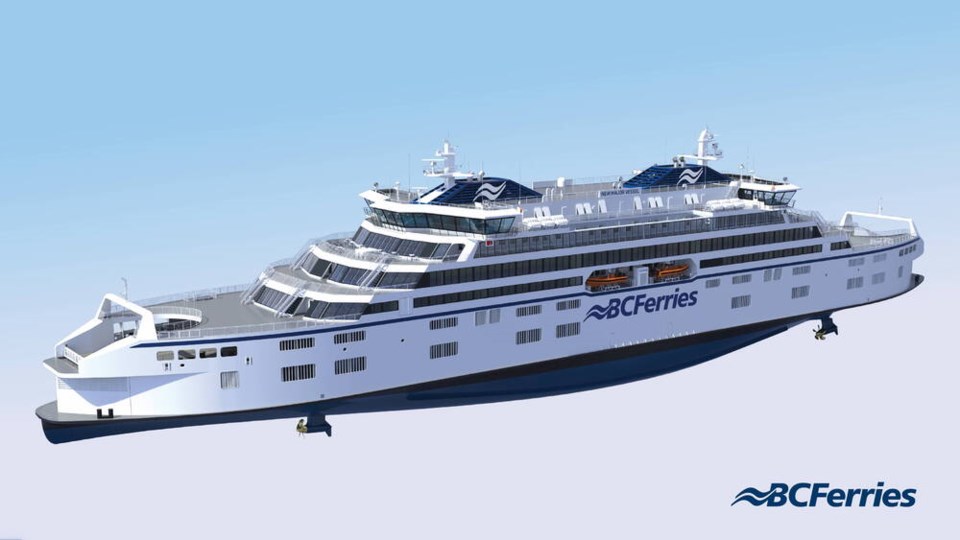The B.C. Ferry and Marine Workers Union is adding its voice to the growing chorus opposing a decision to spend $690 million on new ferries to be built in China.
The union has launched a campaign called “Build Them Here” that asks B.C. residents to make some noise over the decision to purchase four new electric-diesel ships from a Chinese shipbuilder using a $1 billion federal loan.
“B.C. Ferries says this is about savings. But the savings are short-term. We’ve seen the long-term costs — delays waiting for parts, mismatched systems, repair crews flown in from abroad. It hurts service,” union president Eric McNeely said in a statement.
“This is a national-interest decision with generational consequences. Public contracts should build our industries, not industries offshore.”
The union has launched a website Buildthemhere.ca, which it says busts myths about the cost of sending a contract of this size offshore.
The union claims it could mean the loss of $1.2 billion in wages, $1.1 billion in GDP, and more than 5,000 skilled jobs.
The website suggests Canada has the skills and shipyards to build ferries, but B.C. Ferries designed a process that made it almost impossible for local yards to compete due to tight timelines, lack of provincial co-ordination and a focus on the lowest cost.
The site says offshore builds may look cheaper, but that’s because they don’t count the cost of lost jobs, lost training, and long-term dependency on foreign supply chains.
The deal to buy the ferries in China has also drawn criticism from B.C. Premier David Eby and federal Internal Trade Minister Chrystia Freeland.
Freeland said last week she was “dismayed” by the decision, though she stopped short of calling for the loan’s cancellation.
The House of Commons transport committee has launched a study of the Canada Infrastructure Bank loan.
B.C. Ferries announced in June that it had hired China Merchants Industry Weihai Shipyards to build the new ships after a five-year procurement process that did not include a Canadian bid.
The Canada Infrastructure Bank contributed a $1 billion loan to the deal and said in June that the new ferries “wouldn’t likely be purchased” without that financing.
The bank said the low-cost loan includes up to $690 million to buy the vessels and up to $310 million for electrification infrastructure.



